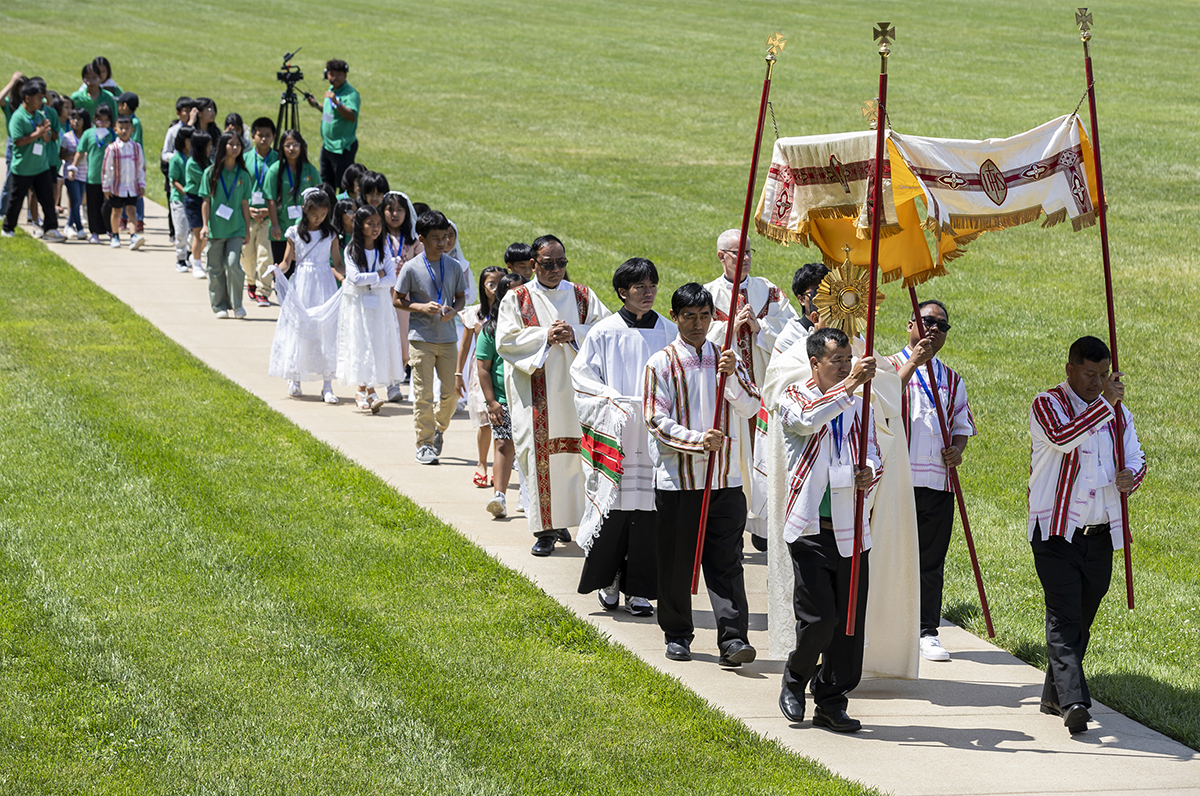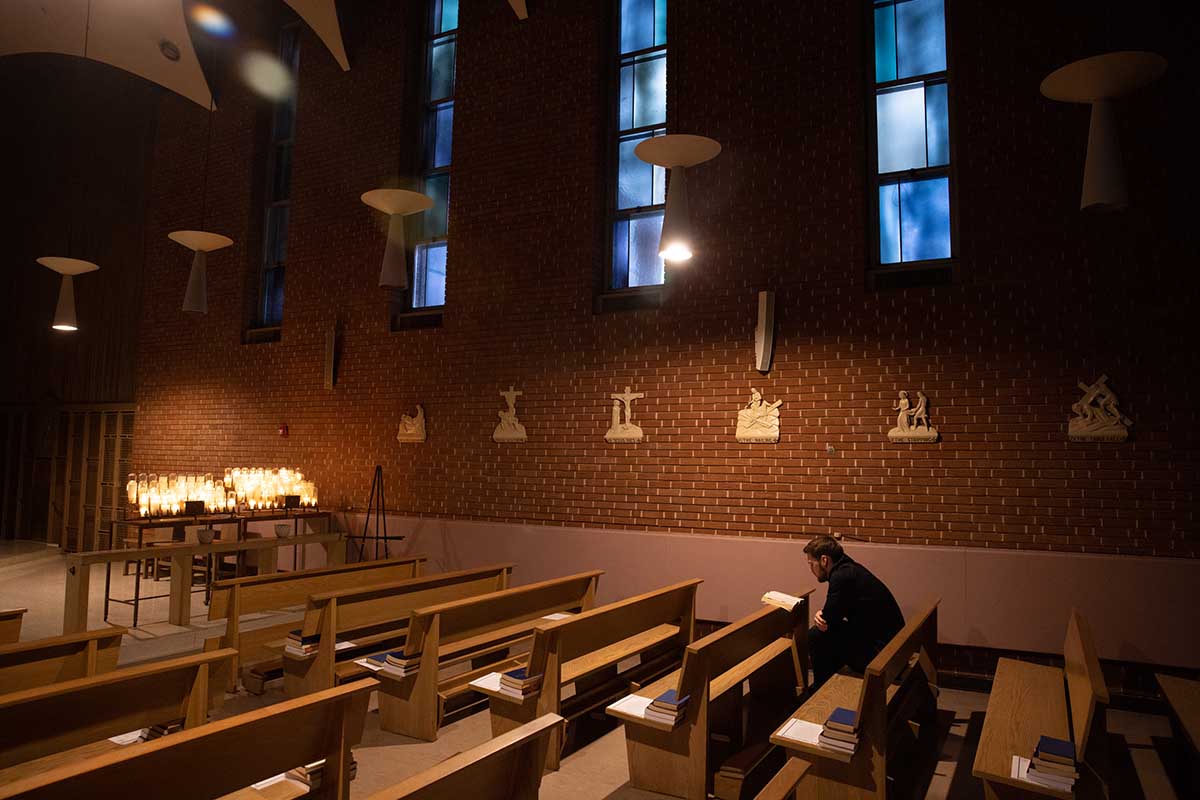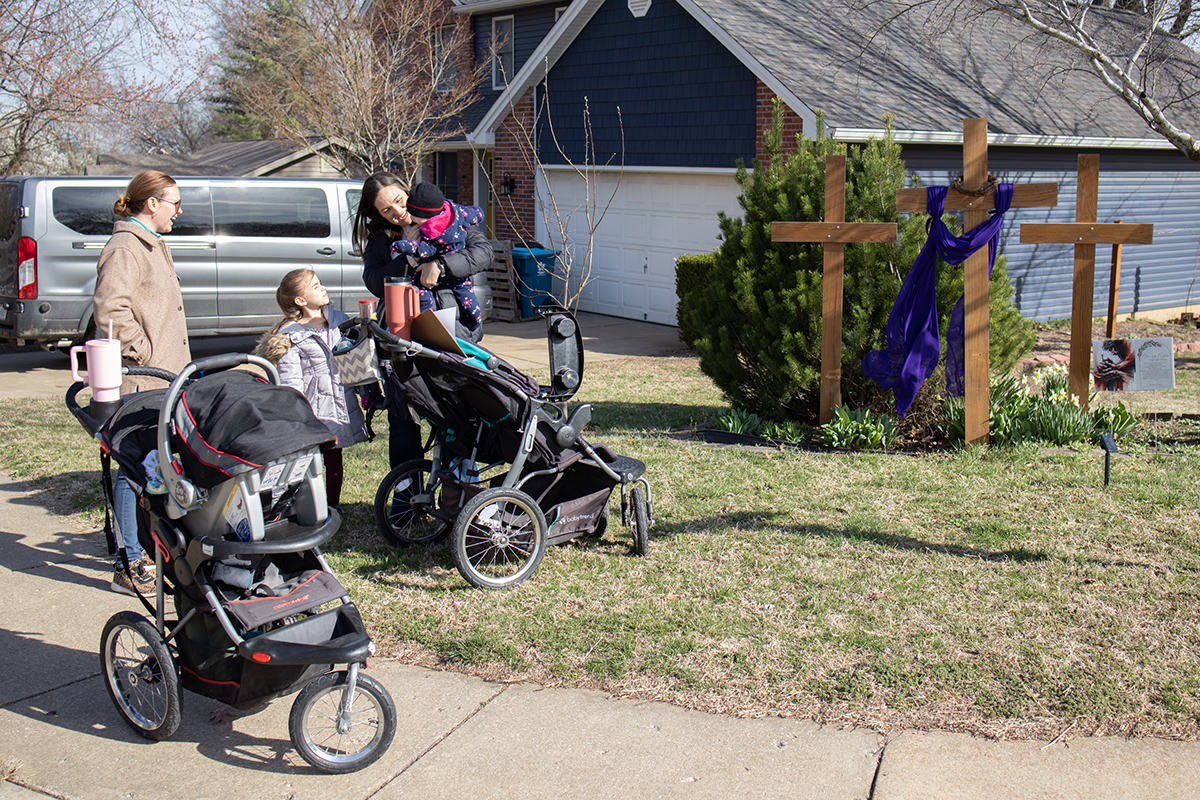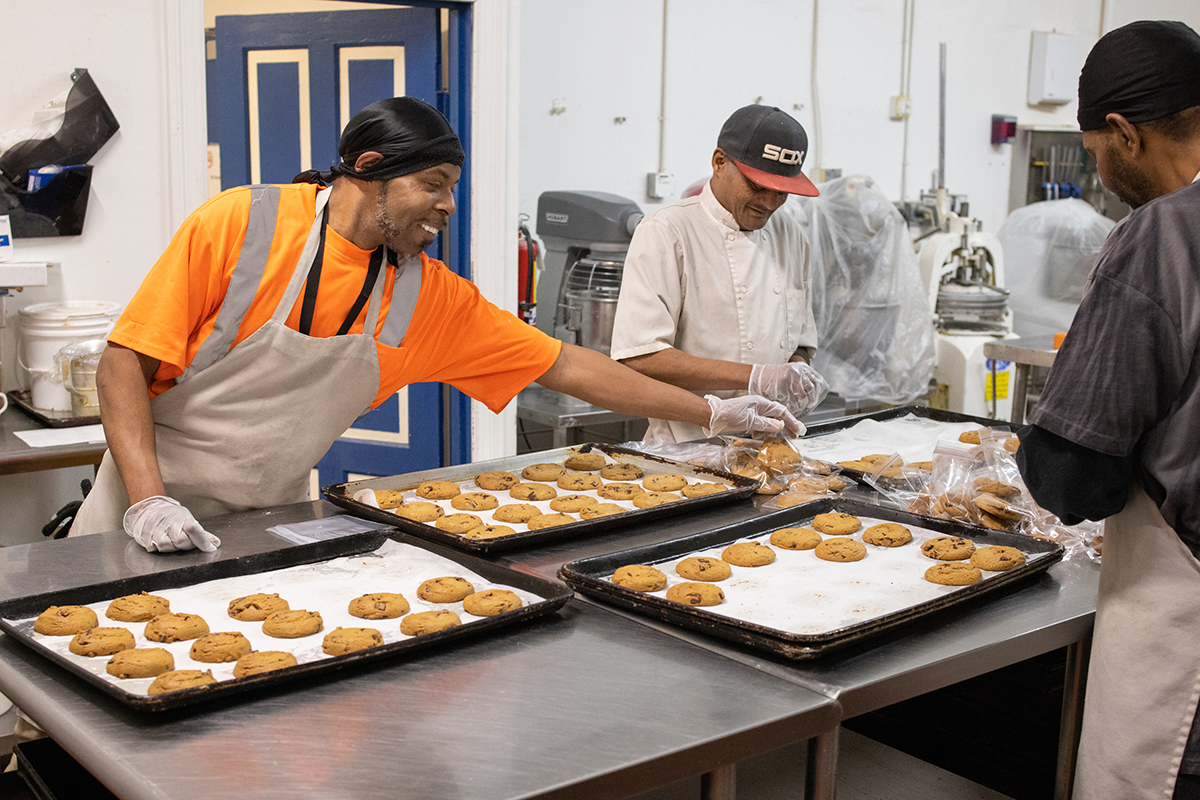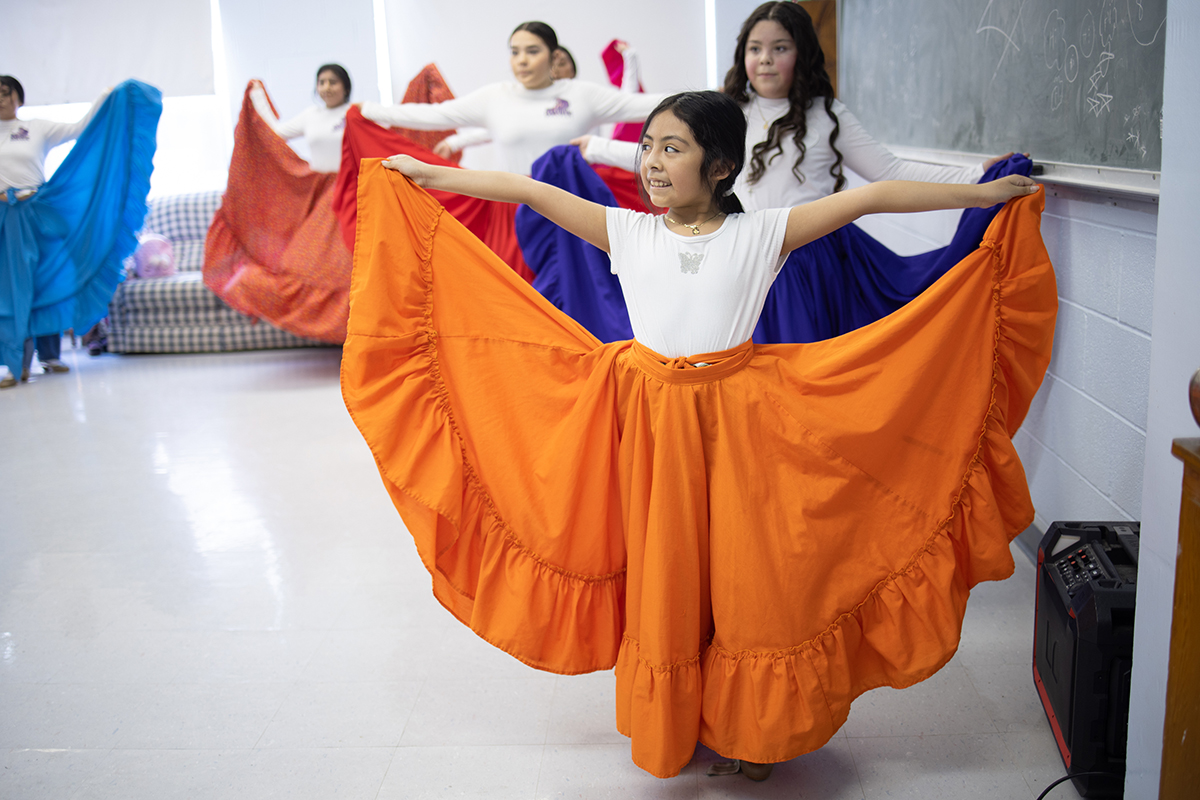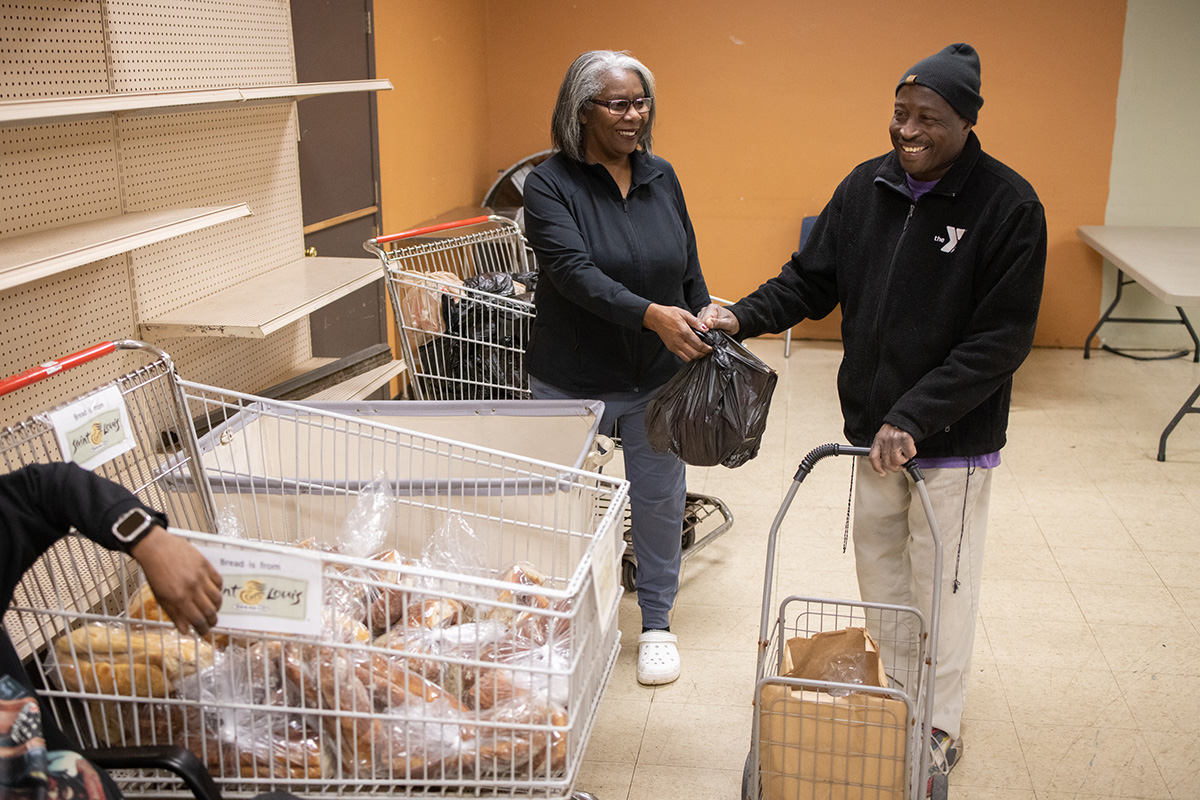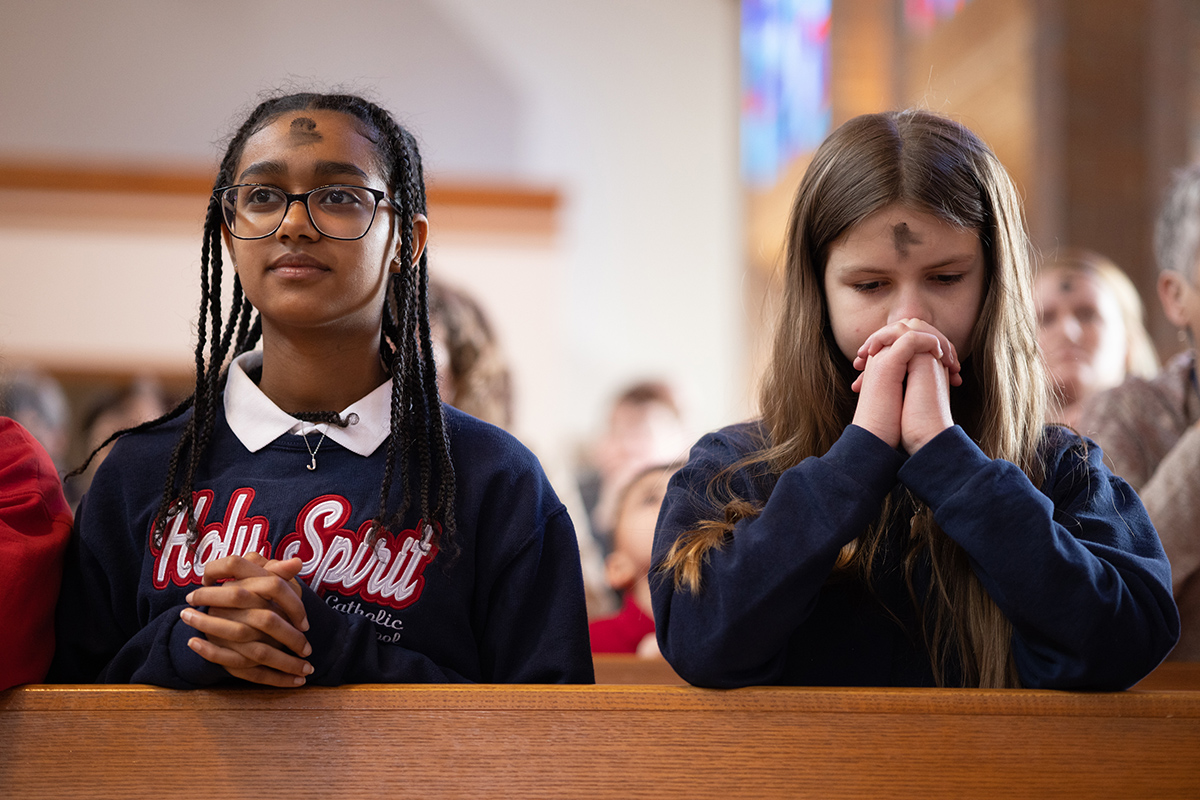Baking illustrates Advent spirituality
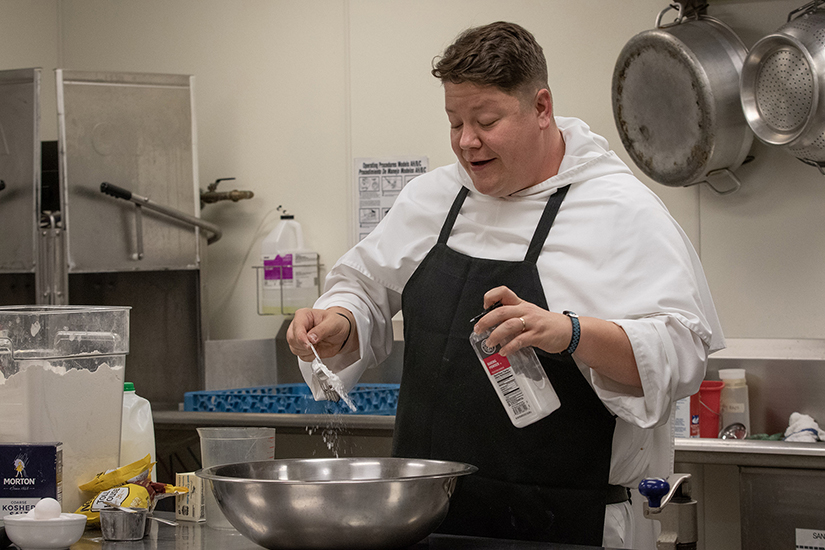
Dominican brother’s baking illustrates the anticipation of the Advent season and baking
Baking bread involves a lot of waiting — and Brother Joseph Paul Albin says that’s appropriate for Advent.
A hobby baker, Brother Joseph Paul has assumed the role of baker-in-residence at the Dominicans’ St. Dominic Priory in St. Louis. He’s joined weekly by other Dominicans at the priory who help bake scones, cookies and biscuits. He bakes bread periodically.
Bread-baking
B

aking bread takes longer than the treats. “It’s not a lot of work, but you have to let it rise, depending on the dough, some of it for 12-18 hours.”
“There’s an Advent spirituality in that,” Brother Joseph Paul said. He cited making a dough with what’s called a poolish, — one part flour and one part water with a small amount of yeast, that results in a fairly wet sponge that is left to ferment for many hours. The fermentation time depends on how much yeast is added and the ambient temperature.
“You make that the night before,” Brother Joseph Paul said. “You wait 12 hours. Then you add more flour. You wait five or six hours. Then you shape it. Then you wait another hour or two. So by the time you’re actually baking it, it’s a 20-hour wait time for a loaf of bread. In today’s world, we want everything so quickly. We’ve lost the art and magic of anticipation. That kind of baking, bread-baking specifically, forces you into that kind of anticipation.”
It can be a two-fold benefit, he said. “The first is the gathering to bake together. So there’s a being with each other that is so important. I almost never do my own dishes because the men know that as I’m baking there will be something pretty wonderful at the end that we’ll all share,” Brother Joseph Paul said.
The second is offering guests hospitality. A cookie, a scone or slice of fresh bread can be a generous gift when the busyness of life whisks away time to bake.
Advent and preparation
Christmas events seem to come earlier and earlier every year. It’s part of what’s called the “Christmas creep,” the tendency of retailers to offer Christmas-related merchandise — along with seasonal decorations, music, television programming, and so forth — earlier each year. Brother Joseph Paul said it’s good whenever people come together, and “I’m not one of those dour, ‘No Christmas parties before the 25th’ kind of people because I think the way our culture and life is organized that’s an impossibility. But I think there is a great importance to spending time considering both the Incarnation and the Second Coming. That’s what Advent is really about. If you’re not finding some time to mentally and spiritually prepare for the celebration of the Incarnation, you’re missing the point of the season.”
Brother Joseph Paul, a member of the Dominican Friars Province of St. Martin de Porres, once worked in the food-service industry — in industrial kitchens such as hospitals and nursing homes. In college, before he started working in ministry, he worked in fine-dining restaurants as a line cook and prep cook.
He started regularly baking at the priory, and now he better not stop or he’d leave some disappointed palates.
Most homes are centered around the kitchen, Brother Joseph Paul noted. Not so at the priory. “At our house the real center of our home is the chapel,” he said.
Still, the kitchen is a second gathering place, he said, an expression of their brotherhood. “It’s not hard to conceive why Jesus said, ‘I am the bread of Life.’ We need food to survive, and we need Jesus to
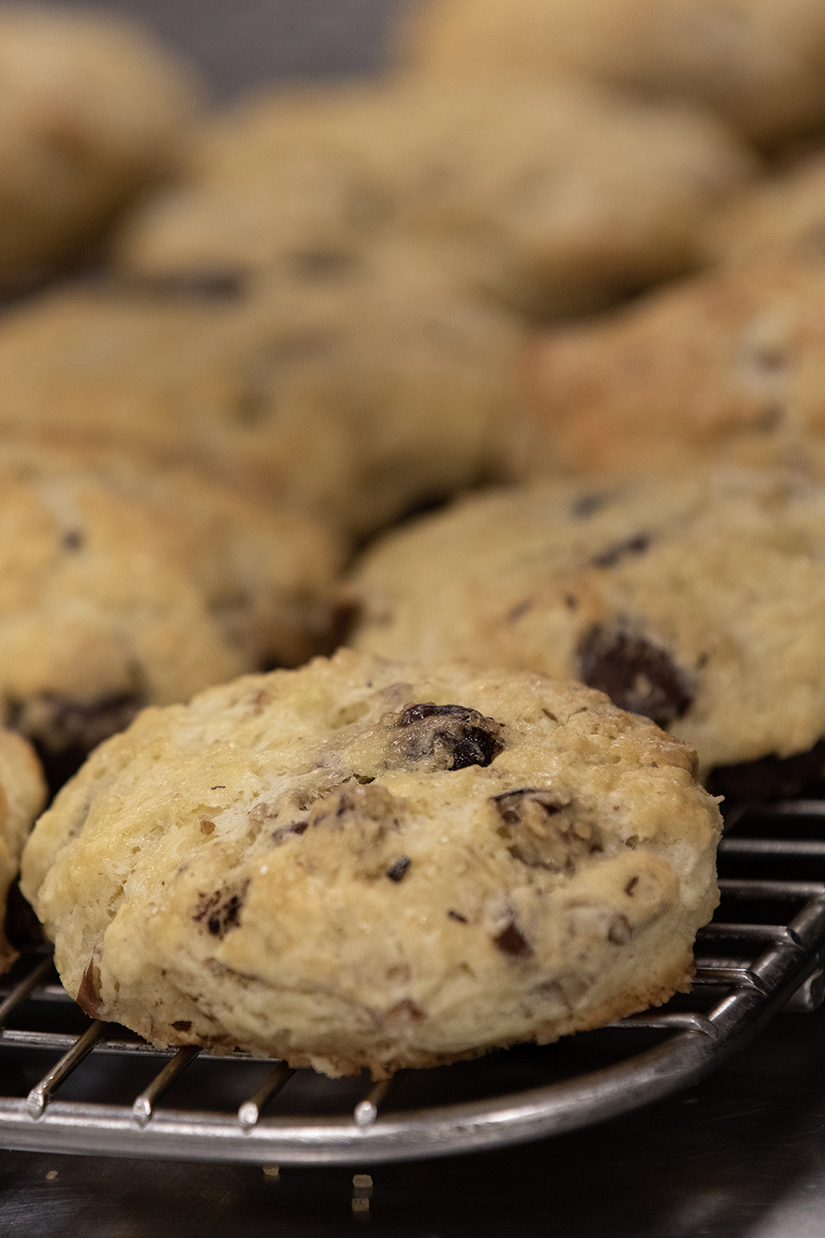
survive.”
Vocation story
Brother Joseph Paul professed solemn vows in 2018 and was ordained to the transitional diaconate in June. He is to be ordained to the priesthood in May in Houston.
Religious life is “the best gift God has ever given me,” he said, “and I can’t imagine what my life would be like without this gift. Whatever you give God, He gives back a hundred fold. So the incredible opportunity and gifts of this life are just unparalleled.”
His vocation story took a few turns. When he first went to college, he was apathetic and perhaps even a bit angry toward faith. “I felt it was kind of foolish,” he said. “I was raised in a Catholic family, and my mother and father very clearly introduced me to Jesus and the Church. I just had that young, rebellious nature that so many people had.”
He tried “almost every other way of living and I found it wanting and in the end, empty. I thought through and tried out other religions and philosophies, and none of them were fulfilling. And so coming back into the Church was a very challenging, messy and slow process,” he said.
As a student at the University of Missouri-Columbia, he began working in the St. Thomas More Newman Center there. In graduate school at Loyola University in New Orleans, he also was a campus minister where he worked with retreats and small faith-sharing groups. Daily Mass and silent prayer became a more important part of his life.
At the Newman Center in Columbia, he said, “A lot of people there saw gifts in me I didn’t see and kept calling me into leadership positions. It allowed me to see who I was before God and who I could be for others.”
Brother Joseph Paul became acquainted with the Dominicans, and it felt like a home to him. He had college debt, and the Mater Ecclesiae Fund for Vocations helped him enter religious life. “God knocked down a lot of obstacles in my life so I could enter the Order of Preachers,” he said.
>> Advent
Beginning the Church’s liturgical year, Advent (from, “ad-venire” in Latin or “to come to”) is the season encompassing the four Sundays and weekdays leading up to the celebration of Christmas.
The Advent season is a time of preparation that directs our hearts and minds to Christ’s second coming at the end of time and also to the anniversary of the Lord’s birth on Christmas. The final days of Advent, from Dec. 17 to Dec. 24, focus particularly on our preparation for the celebrations of the Nativity of our Lord (Christmas).
Advent devotions including the Advent wreath, remind us of the meaning of the season. An Advent calendar at www.bit.ly/37Jhwki provides daily activity and prayer suggestions as a spiritual preparation for the birth of Jesus Christ.
U.S. Conference of Catholic Bishops
Baking bread involves a lot of waiting — and Brother Joseph Paul Albin says that’s appropriate for Advent. A hobby baker, Brother Joseph Paul has assumed the role of baker-in-residence … Baking illustrates Advent spirituality
Subscribe to Read All St. Louis Review Stories
All readers receive 5 stories to read free per month. After that, readers will need to be logged in.
If you are currently receive the St. Louis Review at your home or office, please send your name and address (and subscriber id if you know it) to subscriptions@stlouisreview.com to get your login information.
If you are not currently a subscriber to the St. Louis Review, please contact subscriptions@stlouisreview.com for information on how to subscribe.

